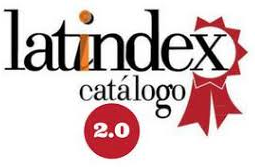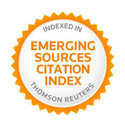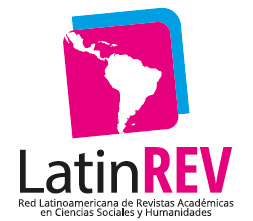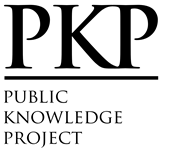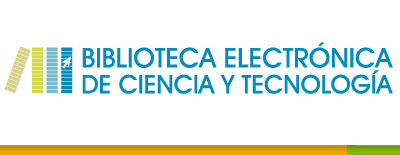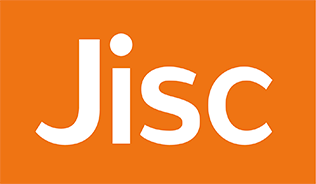Technopessimism in the Spanish Print Media in the Public Debate on the Social Impact of Artificial Intelligence
Abstract
The rapid evolution of Artificial Intelligence (AI) has intensified public debate about its social implications. In this context, journalistic coverage of technological advancements plays a key role in shaping public opinion. As a mediator of public debate, the press has the responsibility to provide critical and balanced coverage of these important issues. This study analyzes how the media represents ethical concerns regarding the social effects of AI. Based on a corpus of 912 articles from 12 Spanish newspapers, the topics and voices shaping the debate over a one-month period, five months after the launch of ChatGPT, were identified. The results reveal the main discourses organizing public debate, highlighting a predominant technopessimist perspective that emphasizes the potential risks AI poses to humanity and the urgent need to establish ethical standards. Additionally, it shows that large tech companies have played a prominent role in the debate, acting not only as key players in technological development but also as the main voices driving the discussion, in contrast to the limited participation of political, governmental, and civil society actors. While no systematic differences were observed between the newspapers analyzed, some differences in positioning emerged when comparing traditional media with digital-native outlets.
Downloads
References
Arfuch, L. (2002). El espacio biográfico: Dilemas de la subjetividad contemporánea. Fondo de Cultura Económica.
Bakhtin, M. M. (1984). Problems of Dostoevsky's Poetics (Caryl Emerson, Ed. & Trans.). University of Minnesota Press.
Barceló‐Ugarte, T., Pérez‐Tornero, J. M. & Vila‐Fumàs, P. (2021). Ethical challenges in incorporating artificial intelligence into newsrooms. In M. Luengo & S. Herrera-Damas (Eds.), News Media Innovation Reconsidered: Ethics and Values in a Creative Reconstruction of Journalism (pp. 138-153). Hoboken: Wiley-Blackwell. https://doi.org/10.1002/9781119706519.
Brennen, S., Howard, P. & Nielsen, R. (2020). What to expect when you’re expecting robots: Futures, expectations, and pseudo-artificial general intelligence in UK news. Journalism, 1-17. https://doi.org/10.1177/1464884920947535.
Bunz, M. & Braghieri, M. (2022). The AI doctor will see you now: Assessing the framing of AI in news coverage. AI & Society, 37, 9-22. https://doi.org/10.1007/s00146-021-01145-9.
Charaudeau, P. (2003). El discurso de la información. La construcción del espejo social. Gedisa.
Crépel, M. & Cardon, D. (2022). Robots vs algorithmes: Prophétie et critique dans la représentation médiatique des controverses de l’IA. Réseaux, 2-3(232-233), 129-167. https://doi.org/10.3917/res.232.0129.
De-Lima-Santos, M. F. & Mesquita, L. (2021). Data journalism beyond technological determinism. Journalism Studies, 22(11), 1416-1435. https://doi.org/10.1080/1461670X.2021.1944279.
García-Orosa, B. (2021). Disinformation, social media, bots, and astroturfing: The fourth wave of digital democracy. Profesional de la Información, 30(6), e300603. https://doi.org/10.3145/epi.2021.nov.03.
González-Arias, C. (2024). Temas y voces de debate público sobre IA en prensa española [Base de datos]. Harvard Dataverse. https://doi.org/10.7910/DVN/5OHWHV.
González Arias, C., & Campos Rojas, C. (2020). El flujo de opinión sobre el sistema de pensiones en cuatro géneros de la prensa chilena: cobertura, voces y problemáticas. Logos: Revista de Lingüística, Filosofía y Literatura, 30(1), 138-153. https://doi.org/10.15443/RL3012.
González-Arias, C. & López-García, X. (2023). ChatGPT: Stream of opinion in five newspapers in the first 100 days since its launch. Profesional de la Información, 32(5), e320524. https://doi.org/ 10.3145/epi.2023.sep.24.
Myers, Greg (2004) Matters of opinion: talking about public issues. Cambridge: Cambridge University Press. https://doi.org/10.1017/CBO9780511486708.
Nguyen, D. & Hekman, E. (2022). The news framing of artificial intelligence: A critical exploration of how media discourses make sense of automation. AI & Society. https://doi.org/10.1007/s00146-022-01511-1.
Nguyen, D. (2023). How news media frame data risks in their coverage of big data and AI. Internet Policy Review, 12(2). https://doi.org/10.14763/2023.2.1708.
Noain-Sánchez, A. (2022). Abordando el Impacto de la Inteligencia Artificial en el Periodismo: la percepción de expertos, periodistas y académicos. Comunicación y Sociedad, 35(3), 105-121. https://doi.org/10.15581/003.35.3.105-121.
Ouchchy, L., Coin, A. & Dubljević, V. (2020). AI in the headlines: The portrayal of the ethical issues of artificial intelligence in the media. AI & Society, 35, 927-936. https://doi.org/10.1007/s00146-020-00965-5.
Palomo, B., Tandoc, E. & Cunha, R. (2023). El impacto de la desinformación en las rutinas profesionales y soluciones basadas en la inteligencia artificial. Estudios del Mensaje Periodístico, 29(4). https://doi.org/10.5209/esmp.92160.
Peña-Fernández, S., Meso-Ayerdi, K., Larrondo-Ureta, A. & Díaz-Noci, J. (2023). Without journalists, there is no journalism: The social dimension of generative artificial intelligence in the media. Profesional de la Información, 32(2), e320227. https://doi.org/10.3145/epi.2023.mar.27.
Roe, J. & Perkins, M. (2023). ‘What they’re not telling you about ChatGPT’: Exploring the discourse of AI in UK news media headlines. Humanities & Social Sciences Communications, 10, 753. https://doi.org/10.1057/s41599-023-02282-w.
Sánchez-García, P., Merayo-Álvarez, N., Calvo-Barbero, C. & Diez-Gracia, A. (2023). Spanish technological development of artificial intelligence applied to journalism: Companies and tools for documentation, production and distribution of information. Profesional de la Información, 32(2), e320208. https://doi.org/10.3145/epi.2023.mar.08.
Sun, S., Zhai, Y., Shen, B. & Chen, Y. (2020). Newspaper coverage of artificial intelligence: A perspective of emerging technologies. Telematics and Informatics, 53, 101433. https://doi.org/10.1016/j.tele.2020.101433.
Tamássy, R. & Géring, Z. (2022). Rich variety of DA approaches applied in social media research: A systematic scoping review. Discourse & Communication, 16(1), 93-109. https://doi.org/10.1177/17504813211043722.
Vergeer, M. (2020). Artificial intelligence in the Dutch press: An analysis of topics and trends. Communication Studies, 71(3), 373–392. https://doi.org/10.1080/10510974.2020.1733038.
Copyright (c) 2024 Cristian Augusto González Arias, Xosé López-García

This work is licensed under a Creative Commons Attribution-NonCommercial-ShareAlike 4.0 International License.
The authors retain the copyright and guarantee the journal the right to be the first publication of the work. In case that a translation of the article already published in Austral Comunicación can be published in another journal, it is requested to record the original publication in the translated version.
The license used is CC BY-NC-SA, which allows sharing (copying and redistributing the material in any medium and format) and adapting (remixing, transforming and building on the material) under the following terms: attribution (acknowledge authorship) and non-commercial (the material cannot be used for commercial purposes). Update: February 1, 2022.
Austral Comunicación allows the author (s) to retain the publication rights without restrictions.








